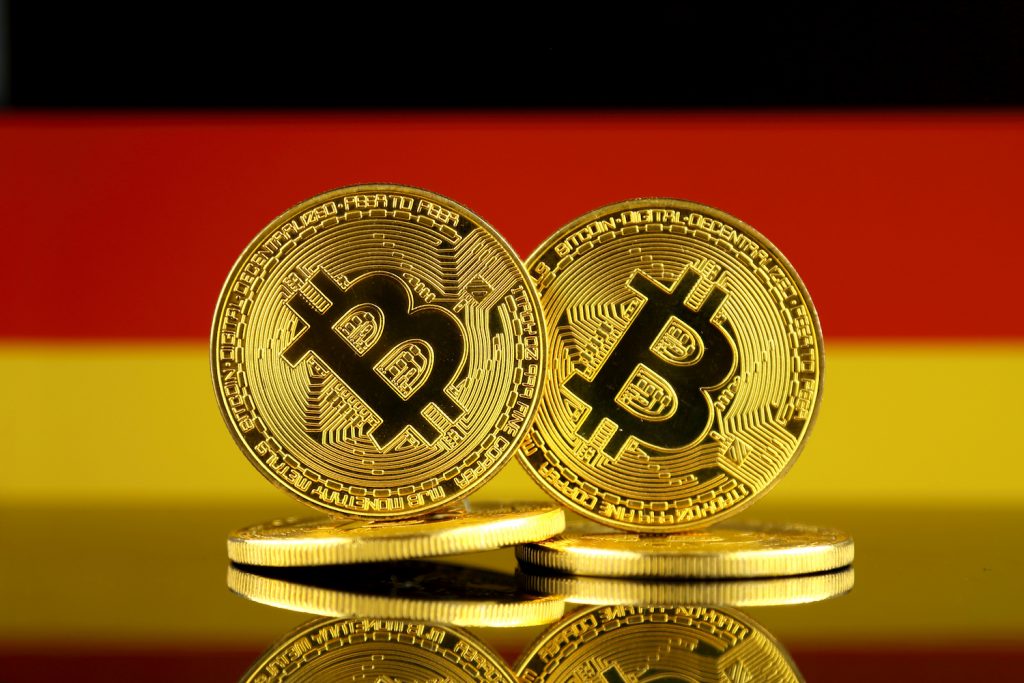Bitcoin as the national currency of Germany?

Bitcoin as the national currency of Germany – this is the goal of Bundestag member Joana Cotar. In the style of a Bitcoin maximalist, their support is limited to the oldest cryptocurrency. This is how the former AfD member positions himself.
Bitcoin as the national currency of Germany? MP plans motion
Will Bitcoin soon become the national currency of Germany? A member of the German Bundestag is currently planning a motion that would do just that, as Cointelegraph reports.
The driving force is the non-party and non-attached MP Joana Cotar, who has been represented in the German Parliament since 2017. Until the end of 2022, she was a member of the Alternative for Germany (AfD) party .
Cotar describes itself as a “clear opponent of the digital euro”. While Cotar supports Bitcoin, the European Union is working on a CBDC, which, although a thorn in Cotar’s side, is supported by many other politicians at federal and European levels.
A few days ago, Cotar attracted attention from the crypto scene. The MP declared in a debate in the Bundestag: “Nobody needs the digital euro!” At the same time, she wore a T-shirt that showed the Bitcoin symbol.
Cotar founded the “Bitcoin in the Bundestag” initiative, which works to disseminate information about BTC. In your opinion, knowledge about BTC and cryptocurrencies is not yet widespread enough in Germany. The initiative is aimed not least at your colleagues in the Bundestag.
“The establishment of a formal Bundestag committee that recognizes the technological differences between Bitcoin and other cryptocurrencies and, above all, deals with the importance of Bitcoin for our society is very important to us,” explained Cotar.
In the long term, the MP wants to submit a legislative proposal that would make Bitcoin the official national currency in Germany. As a non-attached Member of Parliament, this goal could prove difficult.
Why Cotar rejects the digital euro
Cotar fears that the digital euro will transform state control over the monetary system to dystopian proportions. Authorities could then easily impose conditions on user accounts that restrict citizens’ freedom.
The MP sees parallels between a CBDC and a social credit system, as is known from China. Unwelcome citizens are punished and hindered in their everyday lives. The aim of these measures is to make people compliant. Government guidelines must be followed without fail.
“The digital euro would mean that every single one of us could be totally monitored. As a convinced libertarian, I strongly reject this. Anyone who is against surveillance and for freedom doesn’t need a digital euro,” says the 50-year-old clearly.
Cotar’s fears are widely shared in the crypto scene. CBDCs are seen here as malicious counterparts to cryptocurrencies. This is precisely why, says Cotar, Bitcoin must be supported. Instead of state control, the oldest cryptocurrency primarily creates freedom.
We must promote the freedom aspects of Bitcoin!
A new law that would specifically allow the use of Bitcoin in Germany would create legal certainty for companies and citizens when using it as a means of payment.
Cotar still wants to combat the “potential risks” of the blockchain . Tax avoidance and money laundering are two of these dangers. However, it is not clear from Cointelegraph’s article how it plans to take action against this.
Cotar believes there is no alternative to Bitcoin. Your funding is limited to BTC. With her initiative, she also wants to draw attention to the possible risks of other cryptocurrencies.
There are always isolated politicians from different countries who publicly show themselves to be supporters of cryptocurrency. Ultimately, the successes of their plans are often limited and these are not people who are already taking a leading role.
Stay informed, read the latest updates now!
Salvadoran President Nayib Bukele voluntarily used Bitcoin as the official currency in his homeland in 2021. El Salvador is the first country in the world where the cryptocurrency has official status as a means of payment.





13 thoughts on “Bitcoin as the national currency of Germany?”